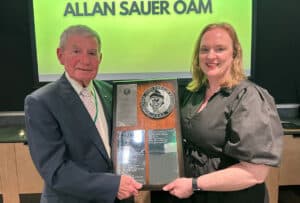
Anthony Caruana
13 July 2024
The creation account in Genesis 1 is both foundational for Christian doctrine and one of the Bible’s most challenging texts to interpret. Here, Anthony Caruana reflects on a recent article which proposes that the creation account of Genesis 1 is “true myth” that joins truth-telling with storytelling. The original article, by Alan Dickin, is from Christian Perspectives on Science and Technology, published by ISCAST–Christianity and Science in Conversation.
As one of the most foundational Scriptures for Christians, the creation account in Genesis 1 has also, across the centuries, been one of the most challenging to interpret.
In the fifth century AD, St Augustine of Hippo warned that naively interpreting Genesis 1 as a literal account “could provoke ridicule of the Church”. In his view the account was written to convey the idea that God created the universe in an instant, to help humans understand the process of creation. In contrast, the Reformers Martin Luther and John Calvin held that Genesis 1 narrated a literal six-day creation.
Today, of course, a scientific understanding of the universe challenges a “literal” understanding of Genesis 1’s creation in six days. But neither would many of today’s Christians concur with Augustine’s “instant creation” idea!
Read more: An elegant, joyful, gentle book: Reading Genesis
Dr Alan Dickin, Emeritus Professor of Geology at McMaster University Ontario, Canada, takes a helpful approach to understanding Genesis 1 in a recent ISCAST journal article.
Dickin and others use the word “myth” to describe the Genesis 1 account. Contemporary Christians may push back at the idea of myth because it seems to represent a fable, a fairytale, an imagined story. However, in its original sense, and as applied to Genesis 1, “myth” combines truth-telling with storytelling. This “true myth” of Genesis 1 provides us with a deepened understanding of creation that science alone cannot achieve. Let’s look further at the rather circuitous route the “true myth” of Genesis 1 has taken to reach us.
Where did the Genesis 1 account come from?
Was Genesis 1 simply a recorded divine vision to Moses? Dickin questions this idea. Rather, he suggests the account documented by Moses is most likely a retelling of a well-known story. The reference to the creation week as the model for the Sabbath, included in the Fourth Commandment brought down from Mount Sinai, implies the creation story was already known to the Israelites.
Dickin also notes strong literary differences in the creation accounts of Genesis 1 and 2 that challenge the idea that Moses wrote Genesis 1 from a vision.
Genesis 1’s account uses Elohim, which is plural, while in Genesis 2 and when God reveals himself to Moses at Mount Sinai in Exodus the name Yahweh is used, which is singular.
While Genesis 1 gives a sequential, day-by-day account that establishes order from primordial disorder, Genesis 2 takes a far more personal approach that starts almost immediately with the creation of humankind. Genesis 2’s story-like character is reflective of Sumerian writings.
To Dickin and others, these differences amount to evidence that the creation account in Genesis 1 comes from a different literary source to the Genesis 2 account, or a different author. Genesis 1 was likely written in the time of Solomon, with the second creation account, the Fall, and the story of Cain and Abel written many centuries before. If the two accounts coexisted, Dickin suggests that the two stories would have become intermingled because they were typically shared orally.
Read more: No false unity on show: God’s Israel and the Israel of God
So, if Genesis 1 was not a recorded vision, where did it come from? Dickin proposes that the creation account of Genesis 1 is material inspired by the Flood story of Genesis 6. The idea that the Flood of Genesis 6 amounts to the “undoing” of creation is not new. For example, if Genesis 1 represents the establishment of order by separating the heavens from the earth and land from the seas, then the Flood reverses that. Elaborating further, the Genesis Apocryphon, found amongst the Dead Sea scrolls, notes that the flood waters recede to recreate order and that Noah (in Dickin’s words) “is invited to rule over the earth in a manner very similar to the blessing of Adam on the sixth day of Genesis 1.”
Creation in Genesis 1 as a ‘true myth’
Our modern minds grapple with inspired Scripture as edited or orally-shared stories and sometimes have difficulty with that notion. Dickin emphasises a way for the modern mind to understand Genesis 1 that appreciates its roots.
The creation narrative of Genesis 1 fulfils two deep human needs, both for those long ago and for us as contemporaries: the requirements for truth-telling and for storytelling. Dickin notes that, while our modern culture sometimes pits those two against each other, ancient culture integrates them in a genre called myth – from the Greek work mÛthos which simply means “story”. The concept here is that as myth, Genesis 1 embodies truths in the form of story.
Science tells us the creation of the universe did not take place according to a literal “six-day” interpretation of Genesis 1. Yet, Dickin points out that Genesis 1 as “myth” still has a historical basis. Genesis 1 was inspired by a real Flood, a turning point of human history.
In this form of “true myth”, Genesis 1’s revelation of biblical truths is more approachable, more integrated with the human drama, than would be possible through a purely scientific account that fails to connect emotionally with ancient or modern audiences.
Anthony Caruana has worked in the technology arena for almost 30 years. He is a journalist and has written for major daily papers and technology publications in Australia. He completed a post-graduate diploma at Ridley College and maintains a keen interest in exploring the intersection between faith, culture, and technology.
For more faith news, follow The Melbourne Anglican on Facebook, Instagram, or subscribe to our weekly emails.






